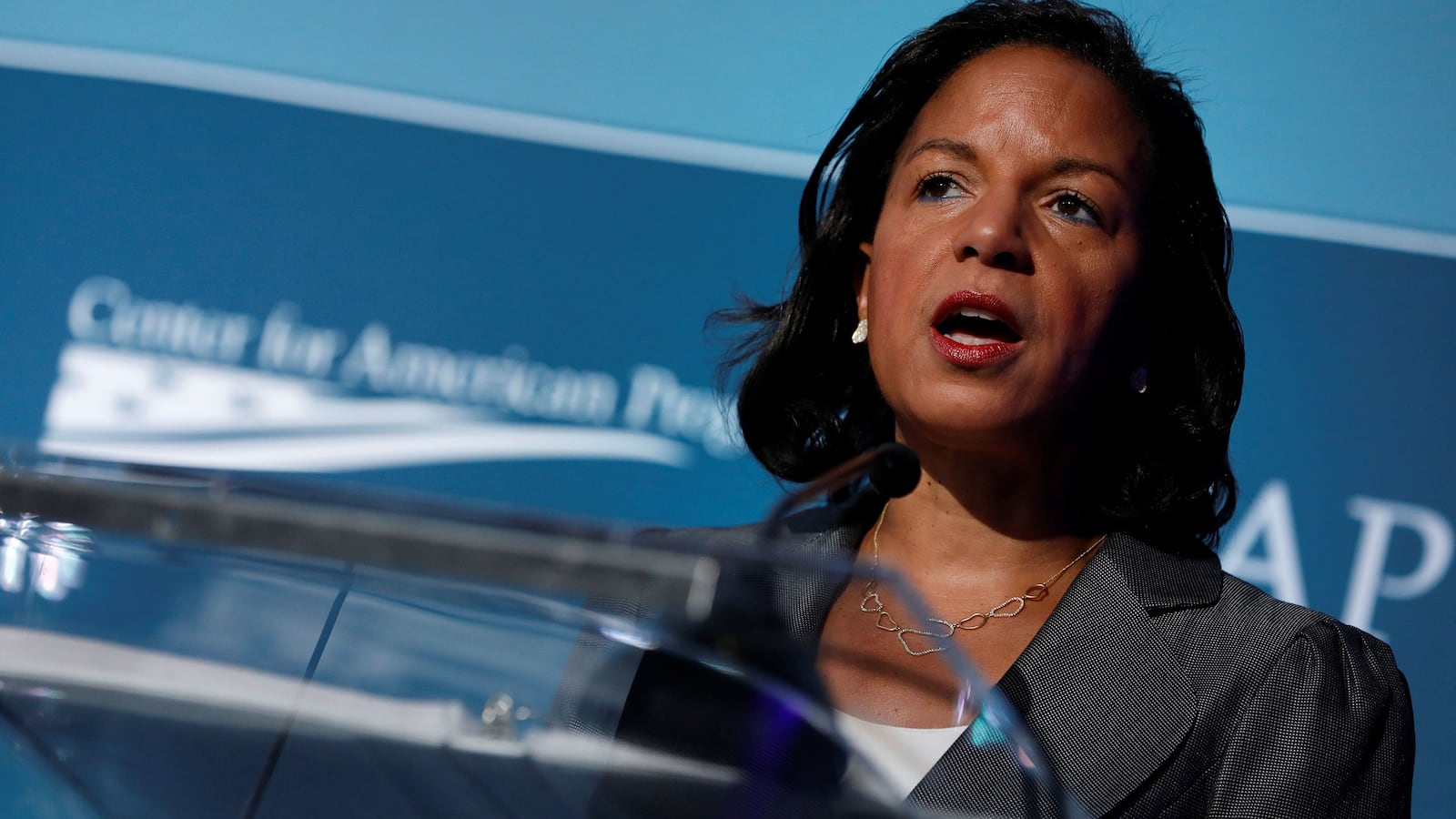Major players for the 2020 Democratic presidential nomination gathered on Tuesday for a conference that was billed as a discussion of the future of the Democratic Party as they struggle to climb out of the post-2016 wilderness.
Instead, as it did in 2016, the conversation returned again and again to now President Donald Trump.
“Millions have flooded our streets, our airports, and town halls in solidarity and protest,” Center for American Progress president Neera Tanden began on Tuesday morning discussing the activist base of the party. “Yet while we celebrate that political action, we also recognize an undeniable truth that we are gathered here today at an extraordinary moment in our nation’s history.”
The event was organized into different panels and speeches about progressive values and ideas, including criminal justice reform, voter disenfranchisement, and working families.
But unfortunately for those high-minded proposals, news that the president allegedly shared classified information in a meeting with the Russian foreign minister and ambassador broke Monday night, leaving nearly every major speaker feeling compelled to talk about the scandal and the man behind it.
The insanity surrounding the Russia investigation even superseded discussions of the widely disparaged House passage of the American Health Care Act something which Democrats have seen as so toxic that it could win them midterm elections.
“What the president did was totally outrageous,” Minority Leader Nancy Pelosi said toward the beginning of the event, referring to the revelation that he revealed classified information. “If it was unwitting, that would be pathetic and dangerous. If it was intentional, that would even be—I don’t know what’s worse.”
“I have to hope that someone will counsel the president just what it means to protect closely held information,” Representative Adam Schiff, ranking member of the House Intelligence Committee, said on stage in response to the news.
“Now is the time to remind [Trump] our intelligence services are not gossip and that his personal desire to impress his Russian buddies does not outweigh the safety, security, and lives of Americans and our allies,” Sen. Elizabeth Warren said during her speech.
And of course, Representative Maxine Waters called for his impeachment.
The speaker who drew some of the biggest applause, Susan Rice, was not even planning to run in the future.
“If we cannot find our way to put country over party, and democracy over demagoguery, even in the face of such a dangerous external threat, then we might as well hang up our leadership cleats and resign ourselves to becoming a second-rate power,” Rice said. “That should not be our future. We are so much better than that. At our best, we are still the bright beacon to the world of hope, creativity, justice, and opportunity.”
When the speakers weren’t preoccupied with news coming out of the White House, they were using the limelight to pedal their platforms—even if they had recently denied that a presidential run was in their future.
Senator Kirsten Gillibrand spoke at length about the Family and Medical Insurance Leave (FAMILY) Act, a measure that would guarantee workers up to 12 weeks paid leave, which she reintroduced earlier this year.
“I would like to challenge the president to join us in fighting for a national paid-leave policy,” Gillibrand said. “It’s not just a women’s issue. It is a middle-class economic issue that creates growth and rewards work.”
Senator Kamala Harris focused majority of her speech on the recent news that Attorney General Jeff Sessions planned to order federal prosecutors to crack down more harshly on drug offenders.
“I saw the war on drugs up close, and let me tell you, the war on drugs was an abject failure,” Harris said. “It offered taxpayers a bad return on investment, it was bad for public safety, it was bad for budgets and our economy, and it was bad for people of color and those struggling to make ends meet.
“We need to do the smart thing and the right thing and finally decriminalize marijuana,” Harris added.
The difficulty for a majority of the speakers was navigating the waters of simple and outright resistance to the administration and providing a practical larger approach for the next step forward.
Another element that was missing from many of the speeches was a reflection on what the party had done wrong in 2016. Montana Governor Steve Bullock, a recently elected Democrat who narrowly won in a state Trump carried by double digits, apparently didn’t get that memo.
“Think about those Rust Belt states that we lost in 2016,” Bullock said to the audience. “The strategy was all about using data to find people who already agreed with us so we could drag them to the polls on Election Day. There was little attention paid to places, paid to places that might be difficult to win.”
The lengthy event ended with an impassioned address from Senator Cory Booker, who connected stories from his childhood to the larger themes of resistance throughout American history.
But, it wouldn’t be a Democratic event without a cringeworthy punch line—and of course a return to the Russia conversation.
“Truman had a sign on his desk that said ‘The buck stops here,’” Booker began. “Trump should have one that says ‘The ruble stops here.’”





